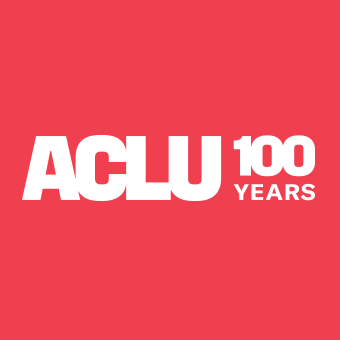The coronavirus pandemic in the United States is deepening as the number of infections soar amid a national effort to buttress the disease.
In New York, the epicenter of the nation’s COVID-19 crisis, Gov. Andrew Cuomo, a Democrat, estimated that 40 to 80 percent of the state’s population may contract the virus, despite adopting stringent social distancing measures to limit the disease's spread.
Amid one grim milestone after the next, governors and local leaders across the country warn that health systems, many of which don’t have the capacities to support a deluge of patients, will buckle as cases mount. Most worrisome are the shortage of ventilators and the minuscule number of available beds nationwide to treat patients.
While the coronavirus is not a uniquely American disaster, the disease has exposed deep-seated injustices prevalent in our society, underscoring fears among advocates that the most marginalized citizens will suffer the most.
America boasts the highest incarceration rate in the world, potentially jeopardizing the health of thousands of inmates, as well as healthcare and correctional staff. Secondly, with the broader economy convulsing and businesses shuttering indefinitely, the estimated 40 million Americans living below the federal poverty line face an increasingly dire situation. Meanwhile, the affordable housing crisis, which could be aggravated by the pandemic, spawns millions of evictions annually and drives more people into homelessness.
The outbreak has also renewed debates about the limited access to paid sick leave and the lack of paid family leave in the United States, the only industrialized nation without such a policy. And in the absence of universal care, yet another way in which the U.S. diverges from other developed countries, Congress passed a bill to ensure free coronavirus testing, though subsidized treatment was not included.
As the pandemic unfolds, experts we interviewed say those at the bottom rung are in danger of falling through the cracks.
Here’s what they had to say.
Poverty
“What we're seeing with this coronavirus is that it's kind of tearing off the blinds of the inequality that was at the center and core of our society,” says Rev. Dr. Liz Theoharis, director of the Kairos Center for Religions, Rights, and Social Justice and co-chair of the modern-day Poor People’s Campaign, a movement inspired by Rev. Martin Luther King, Jr.
In rapid-fire succession, Theoharis documented the profound inequality crushing Americans: the estimated 40 million who are poor, the 15 million families who can’t afford water—the planet’s most abundant natural resource—the 10-to-12 million people who are homeless, and the millions of uninsured people, the latter of which is especially cruel amid a global pandemic.
Theoharis, who has children in the New York City public school system, says the delays in closing schools due to food insecurity underscore how the lack of existing government programs exacerbates the pandemic.
“That kind of inequality is immoral and wrong,” she says. “And surely those folks are hurting the most right now.”
During a tour to the United States more than two years ago, Philip Alston, the United Nations Rapporteur on Extreme Poverty and Human Rights, likened conditions in some areas to that of “Third World countries.”
He visited communities with no functioning sewage system, toured homeless encampments, and spoke to people whose neighborhoods were ravaged by the opioid crisis. At the end, he could only offer blunt criticism.
“The United States is one of the world’s richest, most powerful and technologically innovative countries,” he said in a statement after his visit. “But neither its wealth nor its power nor its technology is being harnessed to address the situation in which 40 million people continue to live in poverty.”
In an interview with News Beat podcast in 2018, Alston said the United States “comes in lowest or almost lowest in almost all of the key statistics relating to social well-being when compared against all of the other rich countries.”
Those dismal rankings have resonance today as millions contend with the pandemic and its consequences.
“I think what we're seeing is that the 140 million people who are already in an emergency, already in a crisis, are being sent into a deeper crisis and are being forced to make choices that no society, especially a rich one like ours, should have to make put people in that position,” says Theoharis.
Criminal Justice System
As cases of coronavirus steadily began to rise more than a week ago, prison reform organizations and advocates said they were concerned about the impact it would have on jails and prisons across the country.
As we previously reported, correctional facilities are vulnerable to the spread of infectious disease—long-held concern advocates blame on critical understaffing, substandard healthcare services, antiquated data systems, and aging populations.
Among those calling on correctional centers nationwide to improve conditions in the short-and-long-term is Maria Morris, senior staff attorney at the American Civil Liberties Union (ACLU) National Prison Project.
As a significant percentage of the global population is practicing social distancing to limit infections, such protocols are largely impossible to achieve in correctional settings, says Morris.
Inmates often live in congested dormitories outfitted with rows upon rows of beds. Dozens of people use a single restroom, breathe the same air and touch the same surfaces.
“And unfortunately, sanitation and hygiene aren't good,” Morris adds. “Often people don't have soap, [or] enough soap. Often they don't have cleaning supplies for their areas, for their personal areas. They may not have enough hygiene supplies...There's a lot of those kinds of issues that make it very hard to control the spread of an infectious disease once it gets into any kind of detention or correctional facility.”
The spread of the disease comes as Americans have only recently begun to reckon with decades of tough-on-crime policies that have contributed to the incarceration of more than 2.2 million Americans, including the racist war on drugs. Yet another hallmark of this era of punitive policies were enhanced sentencing provisions, such as “three-strike” and truth-in-sentencing laws, that tilted power to prosecutors and limited judicial discretion. As a result, “the number of people 55 or older in state and federal prisons increased 280 percent,” Pew Charitable Trusts reported in 2018.
“They also tend to have a lot of people who are not in particularly good health,” Morris says, referring to America’s aging prison population and the large segment of people who suffer chronic illnesses.
For some long-time inmates, age may not be indicative of their lived experience inside these facilities.
“When people have been in prison for a long time, they tend to be very ill,” Morris says. “If you speak with a person who's been in prison for 20 or 30 years, in general, they're going to look a lot older than they are there. Their body will be really broken down by the conditions under which they've been living.”
In response to the growing health crisis, several municipalities are limiting arrests and reducing the number of bail-related jail admissions. On March 23, New Jersey took the most significant action to date by vowing to release upwards of 1,000 inmates in county jail serving sentence for probation violations or crimes adjudicated in municipal court.
“This crisis is going to show us a lot of things about our criminal justice system,” Morris says, including whether medical furloughs and parole for sick inmates become routine policies.
“I think we also should be looking at how we are spending our dollars,” Morris adds. “Even though correctional facilities are horrific places that are themselves underfunded, they're still incredibly costly to the society. And we need to be thinking carefully about how we as a society should be spending our money to keep our society safe.”
Housing Crisis & Evictions
Alieza Durana is a writer for the Eviction Lab at Princeton University, which created the country’s first national eviction database. The lab was an outgrowth of Matthew Desmond’s Pulitzer Prize-winning book “Evicted.”
The lab was established to address the prevalence, causes, and consequences of housing security in the United States, says Durana.
Part and parcel of the epidemic crisis is the long-standing housing crunch in America, where, according to reports, a full-time $40-an-hour earner can’t afford a two-bedroom apartment in any county and two-thirds of renters nationally say they can’t afford a home.
As businesses started to close and the market began to contract amid coronavirus panic, housing advocates forcefully called on leaders to act. As of today, about two dozen states have enacted eviction moratoriums. In states that haven’t taken action, several municipalities have issued moratoriums. (Eviction Lab is tracking evolving eviction policies nationwide on its website.)
The virus’ spread comes at a perilous time for thousands of housing-insecure people from coast to coast.
“Many families, through no fault of their own, are incredibly close to eviction already,” Durana tells News Beat podcast, adding that one in five renters pay more than half their income in housing.
Each year, there are 3.6 million eviction filings in the United States, she adds. And while the lab projects to see 300,000 filings in March, skyrocketing unemployment related to the coronavirus could drive those numbers higher.
Housing had already been tenuous for many families before the outbreak because in 40-percent of eviction judgments across 22 states were for less than $1,000, or one month’s rent. Lost wages or a protracted recession could make housing untenable for so many families that live paycheck to paycheck.
On top of the physical and mental anguish associated with evictions, someone being evicted today would go before an eviction court, potentially exposing them to the virus.
“If they become evicted, they might also end up in a homeless shelter where, you know, homeless shelters are an important part of our safety net, but they're not set up to support social distancing in the way that the CDC [Centers for Disease Control] is currently recommending,” says Durana. “So there are both the immediate effects of eviction under normal circumstances and we are living in unprecedented times at the moment when those effects are even greater than normal.”
Along with state and local efforts to temporarily block evictions, the Trump administration announced last week that the Department of Housing and Urban Development issued a moratorium on foreclosures for borrowers with a Federal Housing Administration (FHA)-backed loan.
At a time when millions have taken refuge in their own homes while practicing social distancing, Durana recommends Americans consider calling their representative to ensure renters are protected and to ask tough questions.
“This is an unprecedented moment in American history,” says Durana. “What are our current human rights and what should they be? And how can we push for those rights and changes moving forward, but within the context of this pandemic and beyond it? Should it really be that people should be evicted from their homes...is there another way that we can tackle that socially, as a society?”









